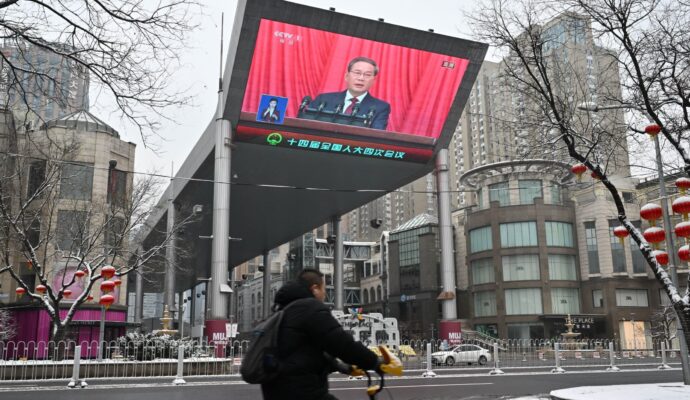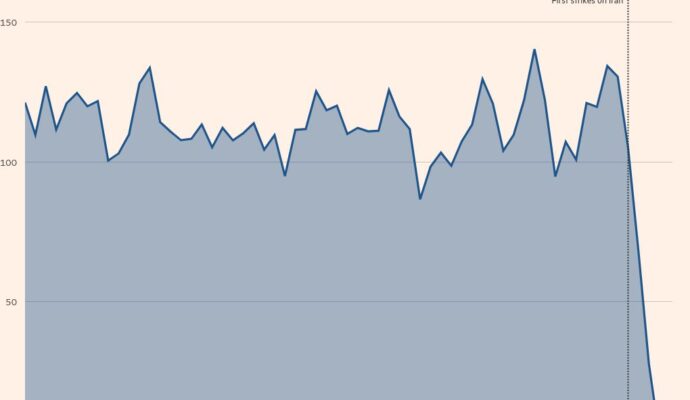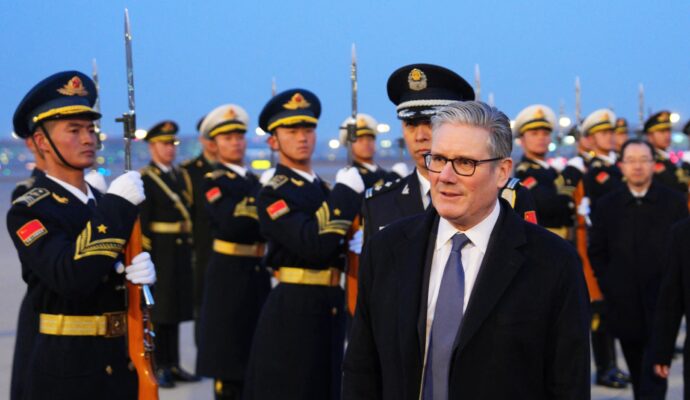
IT IS HARD to see a good ending to the story of Peng Shuai, a Chinese tennis champion who on November 2nd accused a former Communist Party grandee more than twice her age of subjecting her to a coercive sexual relationship. In theory, the party deplores all immorality in office. When it suits the regime, propaganda outlets denounce purged officials for keeping mistresses as well as taking bribes. But China’s rulers care still more about asserting their authority, and their exclusive right to decide which rotten corners of their system to expose and which to keep hidden.
Ms Peng, who is 35, was doomed from the moment she posted her late-night essay. In it she accuses a former member of the party’s most powerful body, the Politburo Standing Committee, of imposing unwanted sex on her during an on-off decade-long affair. It is not the writing of an anti-party dissident. It is personal, even anguished in tone. It is filled with appeals to her alleged abuser, Zhang Gaoli, a former deputy prime minister in his mid-70s, as well as to her 588,000 followers on Weibo, a social-media platform. She notes that she left her family as a young child to enter intense sports training, and calls herself “extremely deprived of love”. She also describes herself as a “very bad woman” but insists that she never took money from Mr Zhang. Nor did she try to collect evidence of their liaison, she adds, though she recalls his paranoia about secret recording devices.
Only a small minority of Chinese saw her essay, which was deleted within half an hour. Then censors moved to suppress discussion of it. Within the Great Firewall of censorship, online searches for Ms Peng or Mr Zhang pull up old news stories, with their comments functions disabled. It is difficult to estimate how many Chinese know of her allegations. It is clear that a large number do not.
The fate of Ms Peng could yet become grimmer. Other women have been punished harshly for challenging much less powerful men. When #MeToo campaigns emerged in China in 2018, feminist groups at universities were closed down and activists detained. True, some academics accused of gross abuses were fired. Sexual harassment was added to the country’s civil code. But to preserve the party’s grip on power, several women who went public with complaints were also crushed. When Zhou Xiaoxuan, a former intern at China Central Television, the main state network, accused a star presenter of groping her, police in Beijing initially urged her to drop the complaints for the sake of society, and for that of her parents’ jobs in the public sector. In September Ms Zhou lost her suit against the presenter.
Sporting fame has given Ms Peng’s case a double existence: censorship at home and intense attention overseas. After the Women’s Tennis Association (WTA), her sport’s America-based governing body, said it had tried and failed for days to reach her by telephone, text or web message, champions including Serena Williams, Naomi Osaka and Novak Djokovic expressed worry about her safety, as did several governments. In Beijing, the embassies of France and the European Union, among others, aired concerns.
In a bid to kill the story overseas, Chinese media outlets took to platforms such as Twitter, which are blocked inside China. This has not gone well. International alarm was fuelled, not soothed, by an English-language tweet on November 18th from CGTN, China’s international television network. It claimed to show an email in which Ms Peng disowned her claims of sexual assault and said she was not missing, but “resting at home”. The editor of Global Times, a party tabloid that is a favoured outlet for exclusives from state-security services, tweeted in English that foreign media should stop speculating that Ms Peng is in danger for accusing Mr Zhang of, as he coyly put it, “the thing that people talked about”. His tabloid then tweeted what looked like staged videos of Ms Peng out to dinner with her coach and meeting children at a tennis event.
Double fault
Ms Peng’s case is revealing. Protected by a monopoly at home, Chinese propagandists struggle in foreign markets which enjoy competition in ideas. They have become reliant on stoking nationalism among the Chinese public and blaming all ills on hostile foreign forces. This time, because Ms Peng cannot be spoken of at home, jingoistic reinforcements are not available. The strain showed on November 20th when a commentator for CGTN accused foreigners of racism for demanding evidence of Ms Peng’s safety. “Funny how some in the West feel people in China should be at their beck and call. Just another form of white male entitlement and privilege?” the commentator tweeted—a charge that might puzzle supporters like Ms Williams and Ms Osaka.
China remains skilled at using market power to browbeat foreigners. On November 21st Ms Peng spoke by video to officials at the International Olympic Committee (IOC). Olympic bosses said that the tennis player seemed well, while failing to address the reason why she might not be well, namely her assault allegations against a former Chinese leader. With the Winter Olympics opening in Beijing in February, the IOC and corporate sponsors have multi-billion-dollar reasons to help China make the Peng Shuai story go away. Therein lies a bleak lesson. The WTA has been brave in challenging China, given that it has organised lucrative tournaments there. But as a women’s sports association, it depends on retaining the confidence of women players. Sometimes there are incentives larger than China’s market.
The silencing of Ms Peng does not just expose the ruthless, self-serving nature of one-party rule. It shows how reliance on China saps the ability of outsiders to stand up for individual rights. There is no evidence that Ms Peng wrote her essay for foreign eyes. But thanks to Chinese censorship, foreigners have ended up as her only witnesses. The world will draw lessons about the true nature of the party from her fate.
The Economist


